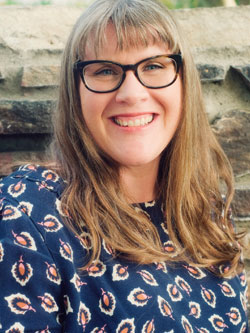Course Feature:
Comm 3290: Indigenous Communication
Danielle Endres, professor of communication, created Indigenous Communication (Comm 3290) in 2005 to explore theories and practices of communication that relate to Indigenous sovereignty, self-determination, decolonization, and survivance. Below, professor Endres discusses more about the course, her research background what student will gain by participating in the class.
Who is this course for?
This course is for undergraduate students at the U – whether communication majors or not – who want to learn about forms of Indigenous communication in Indigenous nations and communities located in North America, the Pacific, Hawai’i, Australia, Aotearoa, and elsewhere. Students with any level of background and interest are welcome to take the course.
How did your academic interests influence this course?
I have research expertise in Indigenous rhetorics and settler colonial rhetorics. I’ve researched and written about Indigenous environmental movements, Red Power activism, nuclear colonialism, the university’s use of the Utes nickname, energy justice for Indigenous nations, and more. The course highlights Indigenous voices speaking to historical and contemporary issues of politics, activism, representation, cultural preservation, and protection of land, all of which relate back to my research.
How did the idea for this course come about?
I have been teaching this class since I came to the U in 2005, when I was given the opportunity to teach a special topic class in one of my research areas. Originally, I imagined the class as a survey of Native American protest rhetoric from Tecumseh to contemporary movements. The class has evolved and changed over the years including a new name: Indigenous Communication. The new name represents an effort to broaden the scope of the course and connect with new innovations in Indigenous studies scholarship.
What do you hope students will take away from this course?
As faculty and students at a university that located is the ancestral homelands of Ute, Goshute, Shoshone, Paiute, and Navajo peoples and nations and that uses the Utes nickname, we have a responsibility to learn as much as we can about historical and contemporary Indigenous experiences through amplifying the voices of Indigenous speakers, writers, scholars, leaders, activists, and artists. I hope that all of my students come out of this class with a better understanding of the lands and original peoples of this place.

